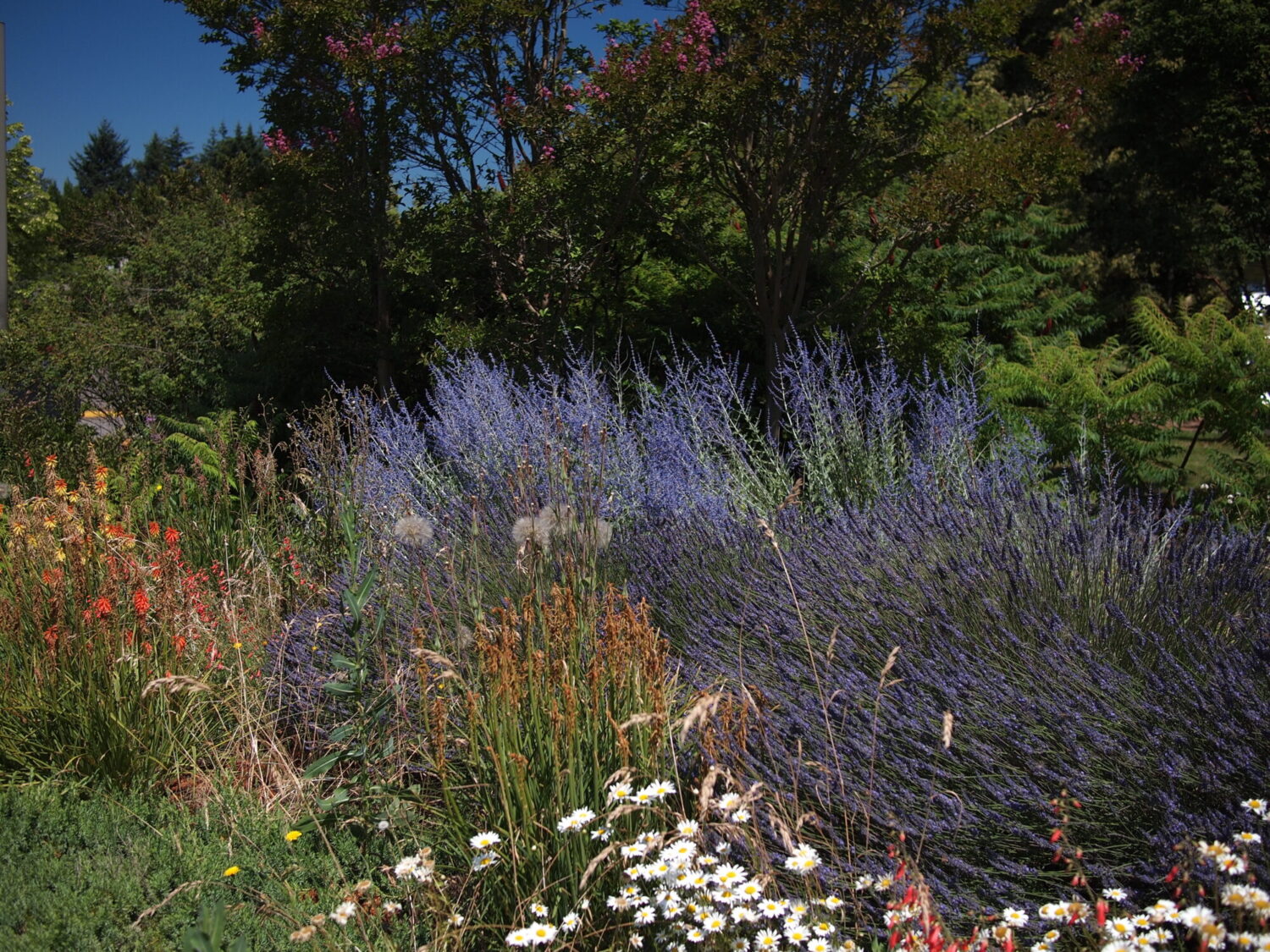
Many of us picked up new hobbies to improve our health and wellbeing during the last year, including connecting with our outdoor space by gardening.
Transforming lawns and concrete patios – by either removing them or placing pots and planters on your porch – provides a refuge for not only you, your family, or housemates, but supports birds, pollinators, and other wildlife. Gardening can also provide us with organic, nutritious food and reduce our reliance on industrial agriculture – all from our back or front yard.
Gardening has a number of wonderful benefits, but during a year of rapid and unprecedented drought, the question remains – how can we garden responsibly?
We all must do our part to conserve water (check out these 10 tips!) and eliminate water waste. Here are ideas to reduce water use and maintain the garden you love:
- Prevent waste with better watering. Water deeply and at less frequent intervals, allowing the soil to dry before watering again – this will encourage deeper root growth and result in stronger, healthier plants that can withstand less frequent watering. For vegetables, allow the top inch of soil to dry before watering again. Use a moisture meter to measure when and whether soil is dry enough to water.
- Check your irrigation. Drip irrigation can save water if it is done properly, but a system programmed to overwater a garden is wasteful. Watering should only be done early in the morning or late in the evening, but make sure to get out and check your system while it’s running to prevent leaks and overwatering. Irrigation requires maintenance.
- Mulch your soil. Make sure that the surface of your soil is well mulched. For vegetable gardens, mulch with straw or a fine-textured organic material that will slowly decay into the soil, increase water retention, minimize weeds, and reduce plant stress by moderating soil temperatures.
- Keep weeds under control. Weeds compete with your plants for sunlight, nutrients – and importantly – water. Being vigilant and keeping up with weeding will provide less competition for your plants, and help them grow with less stress.
- Fallow your garden bed. Allowing your garden bed to rest can support soil health and give you a great vegetable garden next year. You can also let your garden bed rest during summer months and prepare for a winter garden that requires less water during cooler temperatures.
- Take out your lawn. Lawns take resources without giving back to nature. Drought-tolerant and native plants thrive with less or no water, and contribute to the health of our environment by providing habitat and food for local birds and pollinators. Many California cities also offer lawn rebates, if you haven’t already removed your lawn.
Stay informed of water-wise tips and our work to protect California’s waters by subscribing to California Coastkeeper Alliance’s monthly newsletter, becoming a lifetime member, or following us on social media: @CA_Waterkeepers.

Policy Manager Kaitlyn Kalua represents CCKA and its member Waterkeepers in state regulatory and legislative forums to advance statewide water policy.



